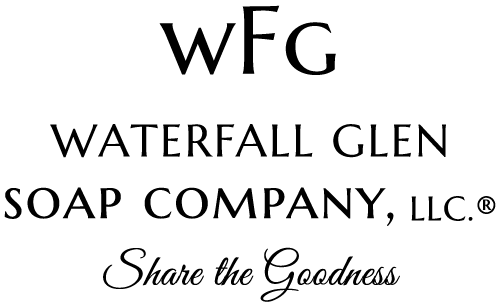Packaging with purpose: how we stay plastic-free
Share
The environmental cost of plastic packaging
Plastic packaging plays a major role in global pollution. Millions of tons of plastic end up in oceans each year, harming marine life and ecosystems. Single-use plastics take centuries to degrade, breaking down into microplastics that infiltrate the food chain. Traditional soap bars often arrive in plastic film or shrink wrap, adding to landfill volume. Even recycling programs struggle to manage the sheer volume of flimsy wrappers. By choosing plastic-free alternatives, consumers can significantly reduce their environmental footprint. At Waterfall Glen Soap Company, we believe that product efficacy should never come at the planet’s expense.
Our compostable and reusable solutions
To eliminate plastic waste, we package bars in unbleached kraft paper that is both compostable and recyclable. Each wrapper is printed with soy-based inks that pose no harm to soil or waterways. For gift sets, we use reusable cotton drawstring pouches that double as travel soap sacks. These pouches are machine washable and made from GOTS-certified organic cotton. For bulk or refill purchases, customers receive bars in cardboard boxes designed to nest neatly and consume minimal shelf space. We encourage customers to reuse outer boxes for storage or repurpose them as plant pot liners to extend their lifecycle beyond packaging.
Innovations in biodegradable materials
Biodegradable alternatives to plastic are advancing rapidly. We experiment with mushroom-based mycelium packaging, which decomposes in garden soil within weeks. Sugarcane pulp trays replace rigid plastic inserts, providing sturdy support for multiple bars without leaving harmful residues. Some of our suppliers offer seaweed-derived films that dissolve harmlessly in water. We also track the degradation timelines of these materials to ensure they meet our sustainability standards. By partnering with emerging eco-tech startups, we help drive broader adoption of plant-based packaging solutions across the beauty and personal care industry.
How you can recycle and reuse
Consumers play a vital role in closing the packaging loop. After enjoying their soap, customers can compost the kraft paper or recycle cardboard per local guidelines. Cotton pouches can be donated or repurposed as produce bags at grocery stores. We recommend saving small packaging scraps for seed-starting trays in spring. If you receive a return or damaged bar, send the wrapper back to us using prepaid mail labels and we will ensure proper recycling. Sharing your creative reuse on social media with #waterfallglenrecycle helps inspire others to rethink single-use habits.
Future goals and community impact
Our commitment to plastic-free packaging extends beyond products. We host quarterly community workshops on sustainable living and DIY composting. Attendees learn how to process organic waste at home and upcycle common household items. We partner with local schools for educational outreach, providing kits for students to build mini compost bins. Looking ahead, we aim to transition entirely to carbon-neutral shipping and expand bulk-refill stations in regional co-ops. By prioritizing both innovation and education, Waterfall Glen Soap Company seeks to cultivate a culture of mindful consumption that benefits people and planet alike.
